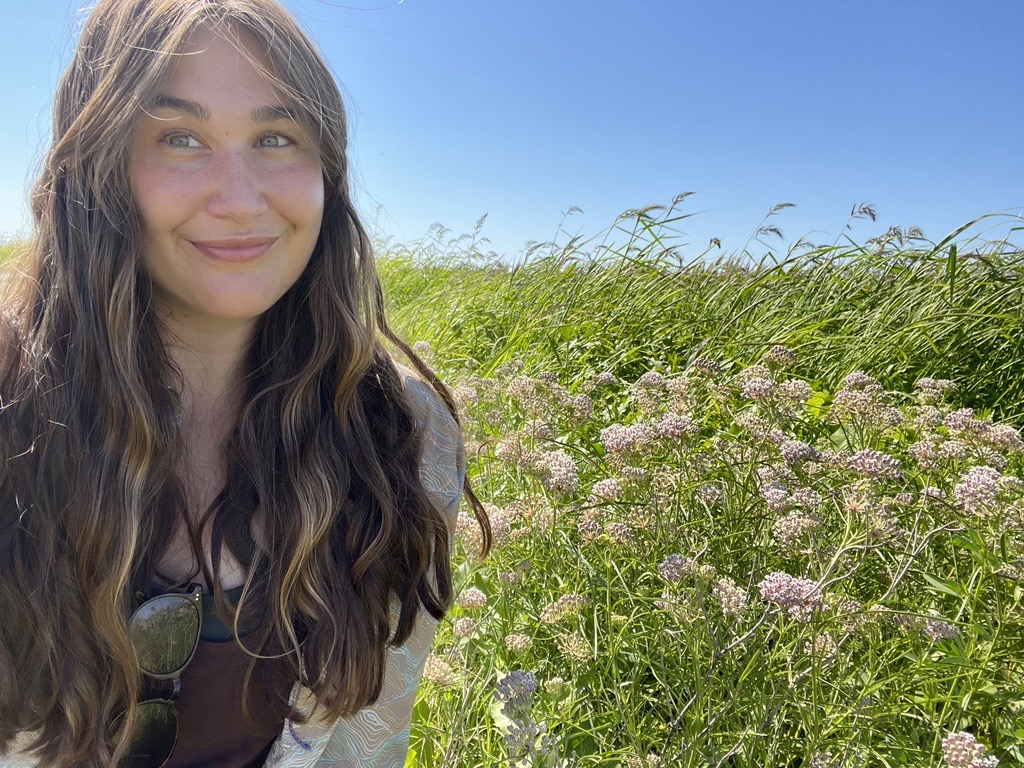Flyway Nights Speaker Series
Flyway Nights is a monthly speaker series held from November to April highlighting environmental issues, current research topics in conservation, and natural history of Northern California.
- First Thursday of the month, unless otherwise noted, from November through April – 7 p.m.
- Events are via Zoom. Registration is required.
- Talks are 60 to 90 minutes in duration.
- A $15 donation is suggested. Donations help ensure that we are able to continue hosting this program.
Upcoming Talks
Flyway Nights has concluded for the 2024-2025 season. The series will begin again in November. Previous talks can be found on our YouTube channel.
Previous Talks
Updates on the Yolo Bypass Wildlife Area
Garrett Spaan – California Department of Fish and Wildlife
April 10, 2025 – RECORDING
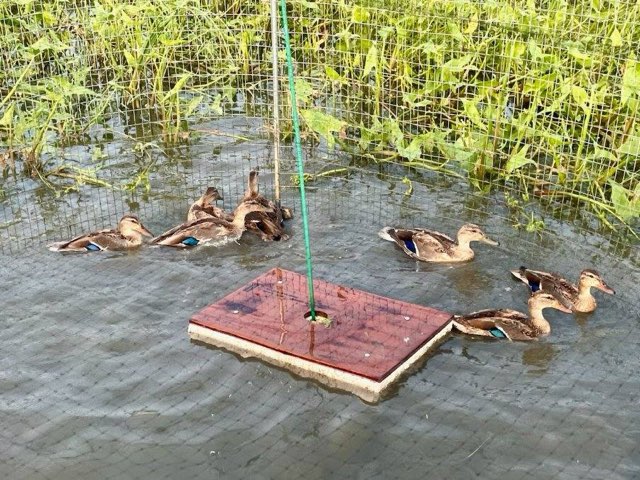
Garrett Spaan, the wildlife area manager at Yolo Bypass Wildlife Area, will be presenting updates on key projects and developments that have taken place over the past year. His presentation will highlight significant efforts in wetland restoration and habitat enhancement, including updates related to the North American Wetlands Conservation Act (NAWCA) grant.
Additionally, Spaan will discuss the California Duck Stamp project and provide information on the Wildlife Conservation Board’s Public Access Grant. He will also touch on the progress of the Nesting Bird Habitat Incentive Program projects and offer an update on the Big Notch Project, the floodplain habitat restoration and fish passage project in the Yolo Bypass. Finally, he will provide an overview of the current habitat conditions across the wildlife area.
These updates reflect ongoing efforts to support wildlife conservation, enhance public access, and improve habitat conditions at Yolo Bypass Wildlife Area.
Wildlife Spectacles in the Yolo Bypass Wildlife Area
Mike Davis – Yolo Basin Foundation Volunteer
March 6, 2025 – RECORDING
If a spectacle refers to a public display of something that is dramatically eye-catching, then there are wildlife spectacles in the Yolo Bypass Wildlife Area that meet that definition. One of the most popular spectacles is the nightly exodus of great clouds of bats that leave their roost under the causeway to catch insects. The quarter of a million bats in the Wildlife Area is one of the largest bat colonies in the state. The return of King salmon to Putah Creek, which transverses the Wildlife Area, is a major celebratory event for our area. Runs of spawning salmon are one of the greatest wildlife spectacles on earth. Other spectacles include soaring white pelicans, hypnotic murmurations of blackbirds, expansive stands of the amazingly complex wildflower Downingia, and large flocks of snow geese flying in V formation, the very definition of a spectacle. But there are other spectacles that might surprise you. Join the meeting to learn more!
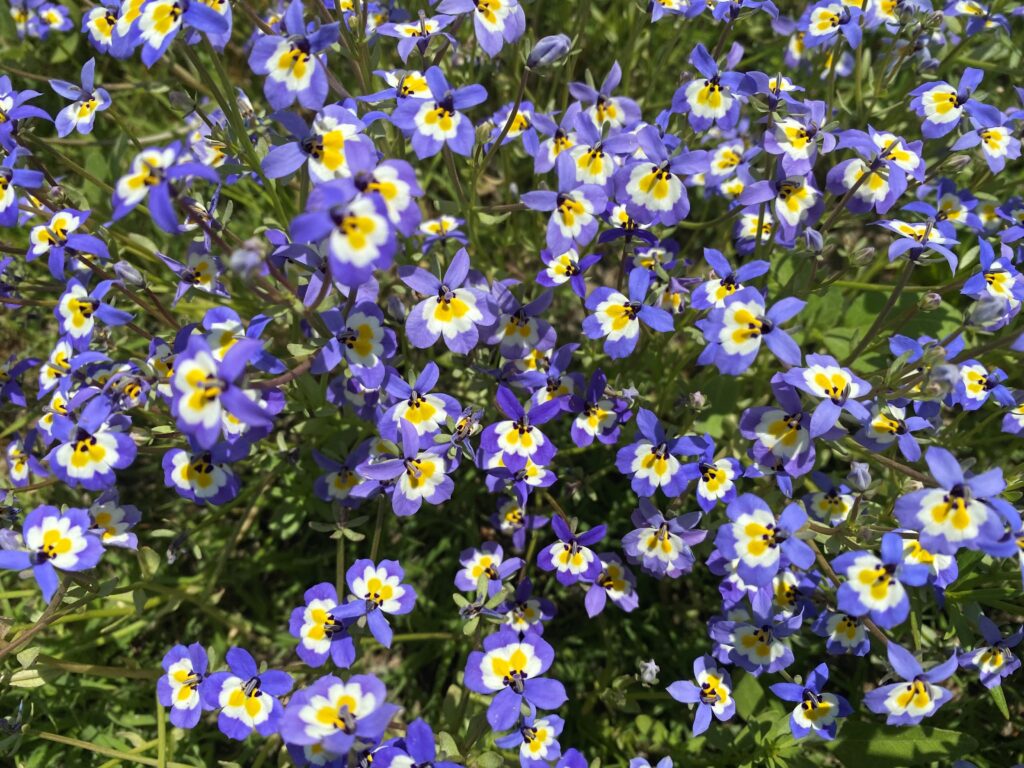
Mike Davis is a retired Professor and Cooperative Extension Specialist in the Department of Plant Pathology at UC Davis, where he taught plant pathology classes as well as courses on mushroom identification and cultivation. Mike is lead author of Field Guide to Mushrooms of Western North America. He has been a volunteer for the Yolo Basin Foundation for seven years and is a frequent visitor of the Yolo Bypass Wildlife Area.
Sharks, Pelicans, and Ladybugs? River Otters, the Little Predators Who Could
Megan Isadore – River Otter Ecology Project
February 6, 2025 – RECORDING
Join Megan Isadore for an entertaining and educational program to learn about river otters’ remarkable lives and adaptability. River Otter Ecology Project has been studying the resurgence of otters in the Bay Area and beyond since 2012. Learn about their life history, prey species, behavior, and why we care so much about where they live and how they are doing.
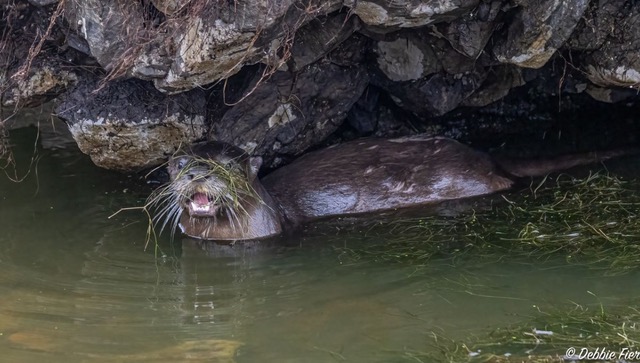
Megan Isadore graduated from the College of William & Mary with a degree in English. She began as a medical writer, and turned her attention to watershed ecology while working with the critically endangered coho salmon of Lagunitas Creek, which led to an interest in watershed ecology. River otters, as the flagship species for conservation, are a natural fit. Their charm, playfulness, and their remarkable ability to touch hearts are among the many attributes that make them ideal ambassadors for watershed conservation and wetland restoration.
The Natural History of Western Burrowing Owls and Failed Conservation Efforts
Catherine Portman – Burrowing Owl Preservation Society
January 9, 2025 – Recording
Catherine will cover natural history and fun facts of the adorable burrowing owl. Many conservation efforts failed to stop the population decline in California, because the conservation tools were woefully inadequate. Recently, the California Fish and Game Commission voted for candidacy under the California Endangered Species Act (CESA).
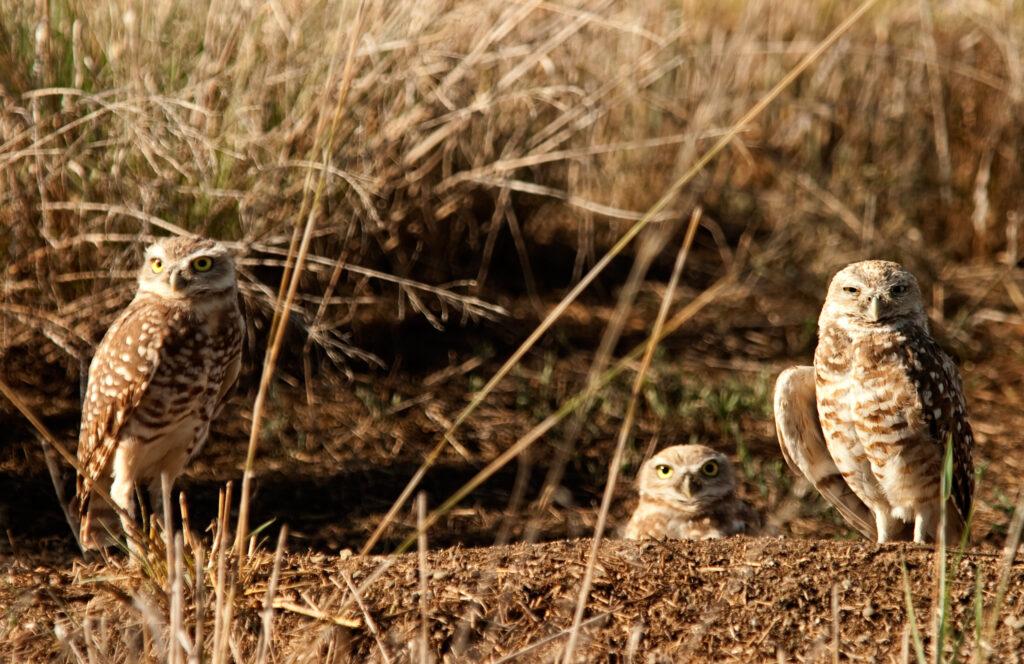
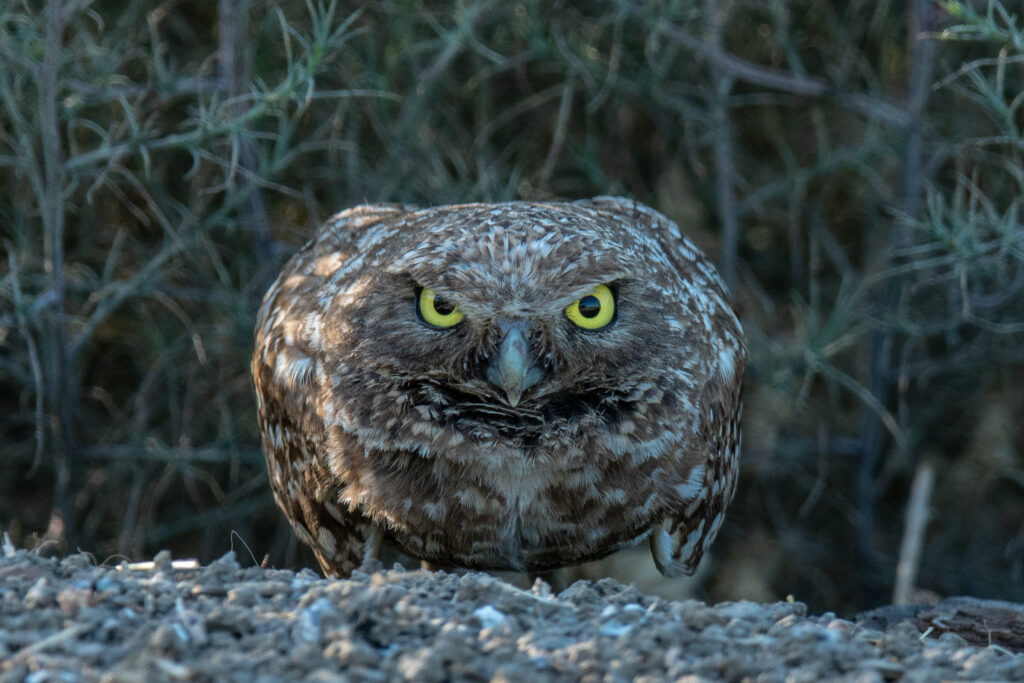
Catherine Portman co-founded the non-profit Burrowing Owl Preservation Society in 2003. She has been working tirelessly on conservation efforts including coordinating a comprehensive Burrowing Owl census in Yolo County, habitat enhancement with artificial burrows, litigation and petitions to protect Burrowing owls and many talks for school students, local government elected officials and wildlife organizations.
Reversing Subsidence in the Delta Using Managed Wetlands
David Julian – Department of Water Resources
December 5, 2024 – RECORDING
Subsidence is a significant issue in the Delta, with potential catastrophic consequences for California’s water supply and climate change. The California Department of Water Resources has developed thousands of acres of wetlands on Sherman and Twitchell Islands to reverse subsidence, sequester carbon, and provide wetland habitat.

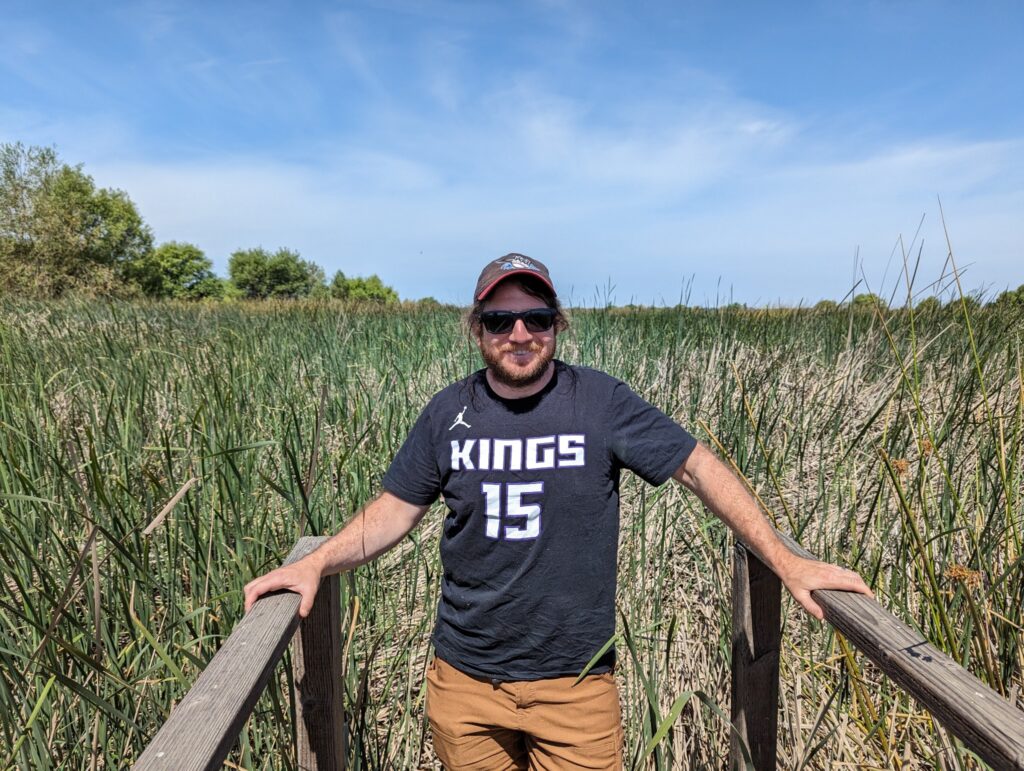
David Julian is an engineer with the Department of Water Resources and manages DWR’s subsidence reversal wetlands. He has over a decade of experience in the California water resources field, including water supply and ecological modeling, levee inspection and flood management, and habitat restoration and land stewardship. David grew up in Davis with the development of Yolo Basin Foundation in the next room as he played with legos and has been going to the Yolo Bypass Wildlife Area since its very beginning with his wetland-obsessed mother. He currently lives in West Sacramento.
Where the Rubber Meets the River: How a Pollutant Associated with Tire Rubber Impacts Threatened and Endangered Fish in the Sacramento-San Joaquin Delta
Jackie Lang – UC Davis, Segarra Lab
November 7, 2024 – Recording

Jackie Lang is working towards her PhD in environmental chemistry at UC Davis. She is interested in the toxicology and chemistry of pollutants in marine, freshwater, and estuarine ecosystems. Jackie has a bachelor’s degree in environmental toxicology from UC Davis and has spent many years researching the presence and effects of microplastic pollution and associated chemical contaminants to aquatic systems. Her current work, and the topic of this talk, involves a recently discovered pollutant associated with tire rubber, which has been shown to cause mass mortality events in Coho Salmon. Jackie’s research goal is to investigate the effects of this ubiquitous pollutant to threatened and endangered fish in the Sacramento-San Joaquin Delta.
Updates on the Yolo Bypass Wildlife Area
Garrett Spaan – California Department of Fish and Wildlife
April 4, 2024 – Recording
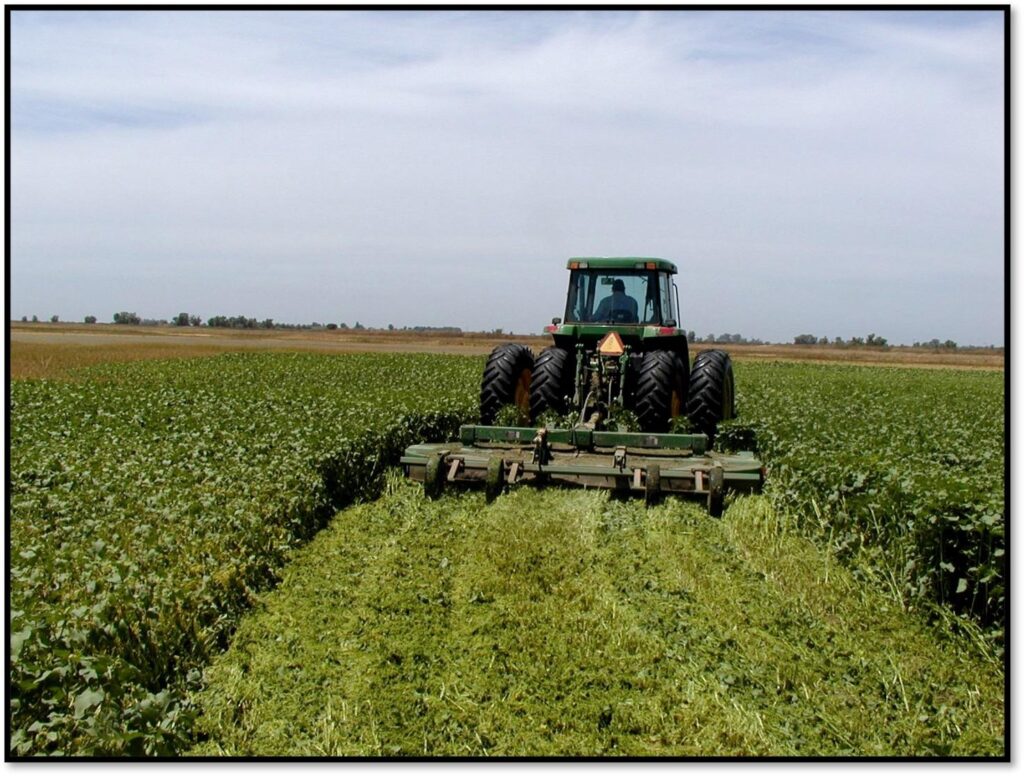
My name is Garrett Spaan, and I am the new wildlife area manager at Yolo Bypass Wildlife Area. I spent the last 13 years working for the USFWS working out of the Sacramento NWR Complex in Willows, CA. My previous positions included Visitor Services Assistant, Youth Conservation Corp Crew Leader, Seasonal Tractor Operator, Park Ranger, and Private Lands Biologist. I started at YBWA in October of 2023, and I am very excited to be here managing this incredible wildlife area and working with a great group of dedicated staff.
I will talk about the different management techniques that occur on the Yolo Bypass Wildlife Area to manage different habitat types. I will also discuss the planned projects on the Wildlife Area for the 2024 field season and the future projects we hope to implement.
The Diversity, Life Cycle, and Leg Use Patterns of Dragonflies, the World’s Most Successful
Predators
Christofer Brothers – Animal Behavior Graduate Group
March 7, 2024 – Recording
Christofer Brothers is a PhD candidate in the Animal Behavior Graduate Group. He currently studies prey capture behavior and functional morphology in both larval and adult dragonflies. Christofer spends his free time catching dragonflies, playing DnD, and making too many puns.
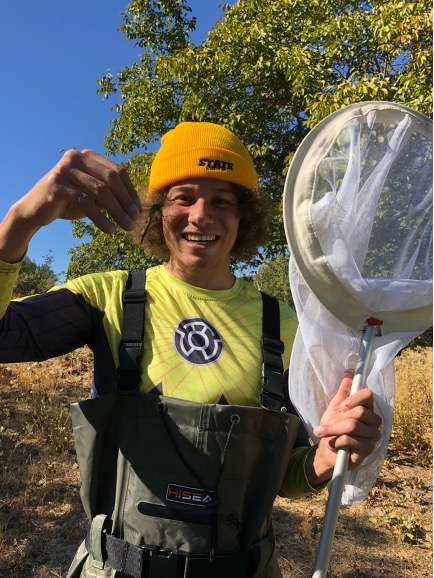
Christofer’s talk will discuss the diversity within the insect order Odonata, the 300 million year old group of insects that are the dragonflies and damselflies we know today. He will place special emphasis on some local species that occur in Davis California, and will also discuss the complex life cycle, mating behavior, and ecological role of dragonflies and damselflies. The talk will conclude with insights into his own PhD research on dragonfly legs and what they tell us about these ancient creatures.
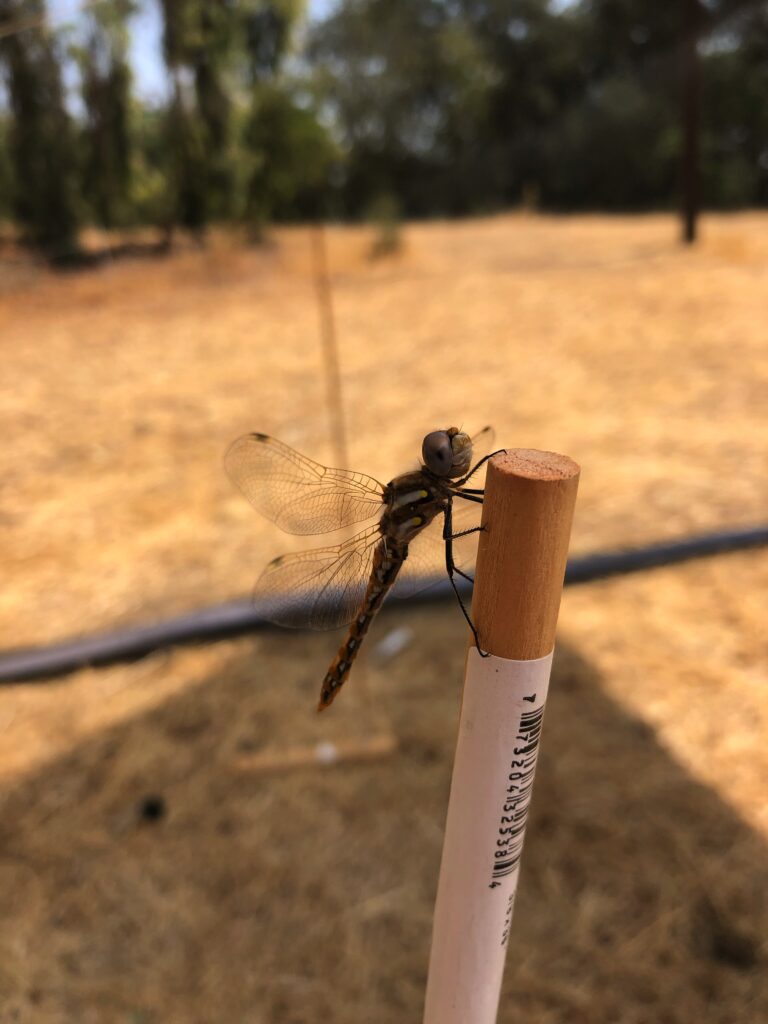
Public Access and Education Capital Improvement Project for the Yolo Bypass Wildlife Area
Martha Diepenbrock – Yolo Basin Foundation
February 8, 2024 – Recording
Be a Part of Enhancing the Yolo Bypass Wildlife Area!
Your insights matter! We invite you to contribute your ideas to improve the Yolo Bypass Wildlife Area and Demonstration Area, creating a better experience for all visitors.
Yolo Basin Foundation, in collaboration with the California Department of Fish and Wildlife, is embarking on the Yolo Bypass Wildlife Area Public Access and Education Capital Improvement Project. Supported by state funding, this project aims to make targeted enhancements to public access, education, and community engagement within the Yolo Bypass Wildlife Area.
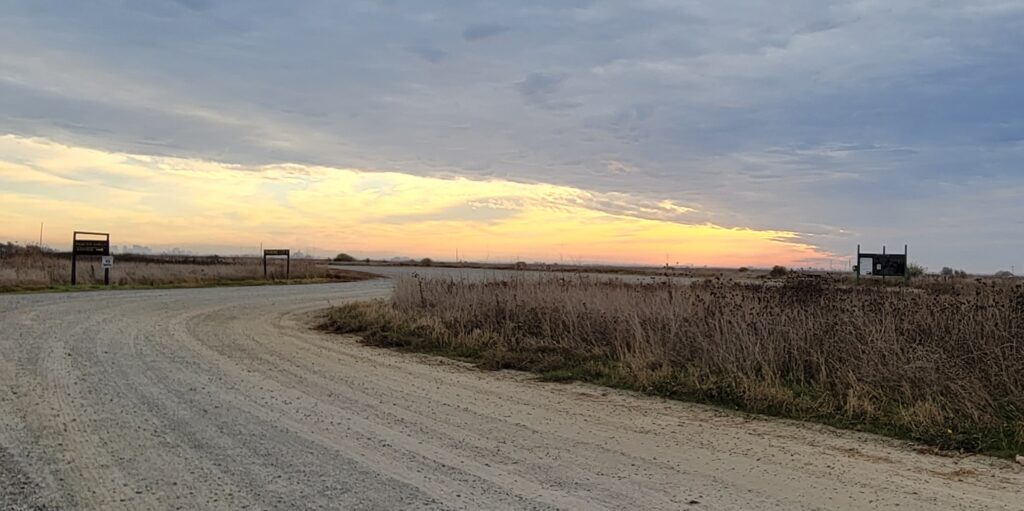
What’s on the project agenda?
- Upgrading Educational Spaces: Help us modernize and improve YBF’s indoor/outdoor classroom and education spaces to better cater to educational needs and foster a deeper connection with nature.
- Mobile Visitor Center Design: Share your thoughts on designing a versatile mobile visitor center and education hub. Your input will shape a space that offers interactive learning experiences for all visitors.
- Signage and Multilingual Self-Guided Tours: Contribute to the creation of an engaging, multilingual self-guided tour of the Wildlife Area. Your ideas will help install directional signage and construct wildlife viewing blinds capable of withstanding periodic flooding while offering optimal wildlife observation experiences.
Your participation is crucial to ensure these targeted improvements align with the community’s needs and aspirations. We encourage you to share your thoughts, ideas, and suggestions to create a welcoming and enriching environment for everyone.
Join us in this focused effort to enhance the Yolo Bypass Wildlife Area! Your involvement will make a meaningful difference in shaping a better experience for present and future visitors.
Stay tuned for upcoming events and discussion sessions where your input will be valued and utilized to create positive changes in the Wildlife Area!
Yolo Basin Foundation Graduate Student Fellowship Recipients
Various Speakers
January 11, 2024 – Recording
Nicole Rodrigues, PhD, UCD – Effects of Wildfire-Derived Contaminants on Behavior and Development of the Yolo Bypass Wildlife Area Mosquito Culex tarsalis
Nicole Rodrigues is a PhD candidate conducting research in the Attardo Lab at UC Davis. She is in the designated emphasis of biotechnology and currently a “Leaders of the Future” Fellow. Her work delves into the impact of biochar on Aedes aegypti, an invasive Californian species, and, with the support of the Yolo Basin Foundation, on Culex tarsalis, a native California species. Biochar is produced when organic matter is burned in the absence of oxygen, and the focus is on studying the effects of wood biochar, a product of natural forest fires, on the nutrition of these mosquito species. By unraveling the intricacies of biochar’s influence, she aims to contribute valuable insights to the understanding of potential ecological dynamics.

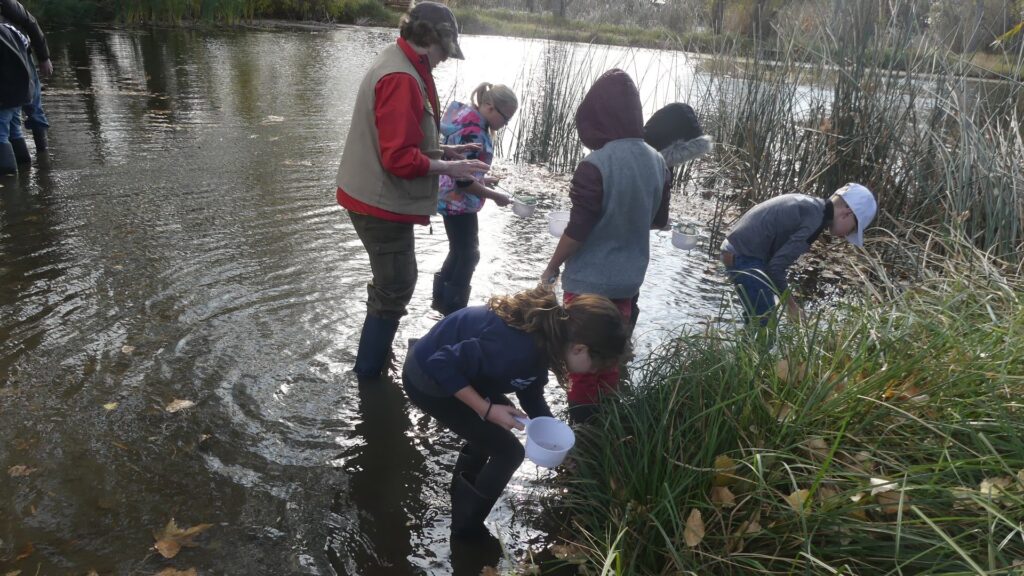
Sara Ostad Rahimi, MS, UCD – Evaluation of Yolo Basin Foundation’s Discover the Flyway School Program
Sara Ostad’s research, conducted for the Yolo Basin Foundation, focuses on assessing the impact of programs like Discover the Flyway on K-12 students and teachers’ views on environmental issues through pre- and post-fieldtrip surveys and interviews. The study underscores the need for in-depth evaluation in shaping effective environmental education, particularly as students increasingly advocate for eco-conscious curricula, offering recommendations for the Foundation’s future initiatives and stressing ongoing assessment in environmental education’s success.
Sara Ostad, a PhD student at the University of Wisconsin – Madison, specializes in Mass Communication in Life Sciences, holding degrees in Environmental Policy and Wildlife, Fish, and Conservation Biology. Her research aims to connect environmental education, policy, and community engagement for better stewardship of Yolo Basin’s wetlands and wildlife, emphasizing environmental justice.
Stephen Gergeni, MS, CSUS – Phase 2; Population and Habitat Assessment for Threatened Giant Garter Snake and the State Species of Conservation Concern Western Pond Turtle
The objective of this study is to increase the understanding of how the giant gartersnake and western pond turtle distribution changes and evolves after flood events in the bypass. This will be accomplished by determining species distribution in 2022, a year with no flood events, versus the following year’s flood event. Data will be collected using environmental DNA (eDNA) sampling to answer the following questions: Are these species present in the study area, are they co-occurring in the same habitats, how do they distribute throughout the season, how does the distribution compare with historical distribution data and how does a flood event affect their distribution? The Yolo Basin Foundation has graciously provided significant funding for this project in their 2021-2022 and 2022-2023 grants.
Stephen Gergeni is a graduate student studying for his MS in Biology (Ecology, Evolution and Conservation) at California State University, Sacramento.

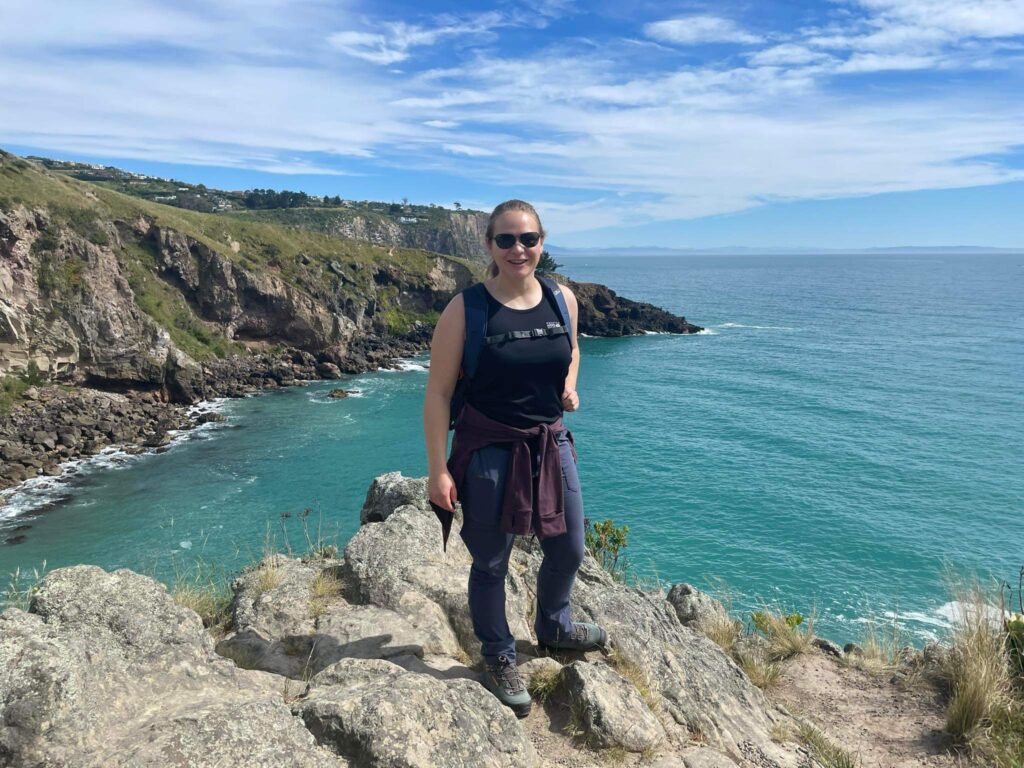
Lauren Hitt, MS, UCD – Creek Origins: Assessing Putah Chinook Salmon Population Through Isotopic Analysis
Since implementing restoration actions like the development of a functional flow regime more than twenty years ago, Chinook salmon have been observed using Lower Putah Creek to spawn almost every year. However, it remains unknown if any of these salmon are natal to Putah Creek, or if it will be possible for a Putah Creek population of salmon to become established. Using a combination of two isotopic methods, this project examines five recent years of spawning salmon in Putah Creek to evaluate whether there are any Putah Creek-origin salmon spawning in the creek, or if all of the salmon are straying in from other Central Valley salmon hatcheries and wild populations. This project provides valuable insight into the development of the salmon population at Putah Creek and an early answer to a question that managers, researchers, and local stakeholders have wondered for years: are there any Putah Creek salmon yet?
Lauren Hitt completed two Bachelor’s degrees in Ecology and Classical Studies at Tulane University in New Orleans, LA. She has lived and worked in all manner of places conducting ecology research with birds and fish, and earned a Master’s degree in Ecology from the University of California, Davis in June studying the salmon population at Putah Creek. Lauren now lives in Christchurch, New Zealand, where she has begun a PhD in Ecology studying threatened galaxiid fishes.
Creating Habitat: A Statewide Experiment for the Western Monarch (Danaus plexippus)
Halie Goeman – Restoration and Wildlife Biologist, River Partners
December 7, 2023 – Recording
River Partners in collaboration with The Xerces Society and Washington State University designed a project that not only aimed to restore western monarch breeding habitat across the state of California, but to also better understand their behavior. This presentation will discuss monarch ecology, the experimental design guidelines of the project, address the lessons learned from the project, and next steps we can take.
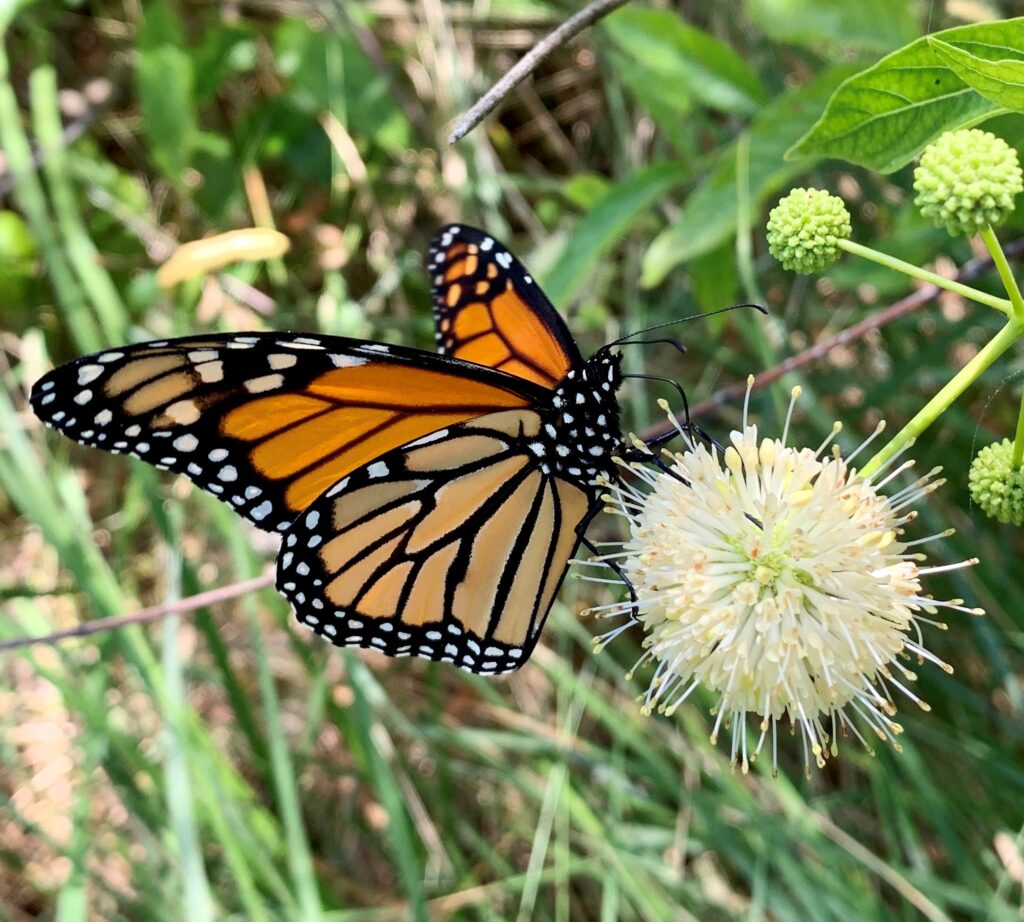
Halie Goeman is a Restoration and Wildlife Biologist with River Partners in Sacramento. She has been working with monarch butterflies since 2017 and is passionate about monarch ecology and conservation.
